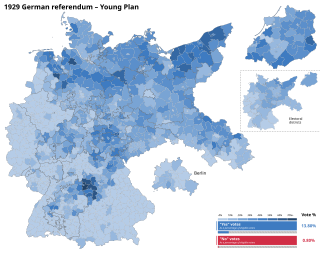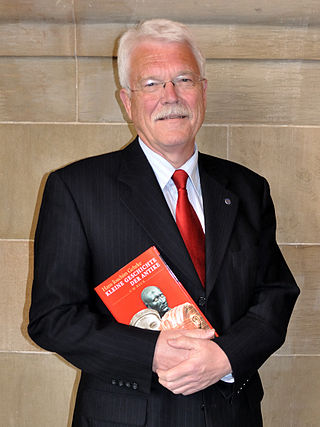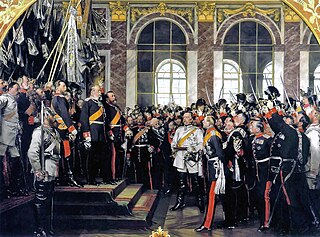Professor Eberhard Kolb (born 8 August 1933, Stuttgart) is a German historian, best known for his research of the German history of the nineteenth and twentieth centuries.
Professor Eberhard Kolb (born 8 August 1933, Stuttgart) is a German historian, best known for his research of the German history of the nineteenth and twentieth centuries.
Eberhard Kolb studied at the universities of Tübingen and Bonn, and attained a doctorate 1960 at the University of Göttingen on the topic of the influence of workers' councils on German domestic politics.
He wrote his habilitation in 1969, and one year later became a professor of modern history at the University of Würzburg. He served as a professor at the University of Cologne from 1979 until his retirement in 1998. In 1981 he spent a year as a visiting professor at the Hebrew University of Jerusalem.
Professor Kolb has published outstanding books on Imperial Germany, the Weimar Republic, and the Third Reich. His learned summary of research on the Weimar Republic is mandatory reading for all students of modern German history. It has been frequently revised and reissued since its publication in 1984, and was translated into English in 1988.
The Bergen-Belsen concentration camp plays a key role in Kolb's work. In 1959 he was a participant in the first study trip on behalf of the state government of Lower Saxony for political education to Israel. In 1960 he compiled a scientific presentation of the camp's history. Initiated by the government of Lower Saxony, it was the first official Belsen exhibition.
Kolb's monograph, "Bergen-Belsen", was published in 1962 in an abbreviated form. [1] It is now in its sixth edition. A "document house" built in 1966 at Bergen-Belsen was conceived by Kolb, and in the 1980s he was instrumental in the redesign of the memorial, which opened in 1990.
Heinrich August Winkler describes Kolb as "one of the best authorities on the history of the Weimar Republic". [2] Kolb wrote the book The Weimar Republic, [3] which highlights problems and trends of the ongoing research, and gives an overview of the most important topics.
Kolb has sat continuously since 1998 as a member of the scientific advisory board of the Otto von Bismarck Foundation. In addition to being an active member, he is co-editor of the Neuen Friedrichsruher Ausgabe, a publication about Bismarck, his sons, and his employees. He sat as advisory chairman of German Chancellor Friedrich Ebert memorial place from 1990 to 2001. Besides his work at the Bergen-Belsen camp, he was involved in the development of the National Memorial at Buchenwald and the redevelopment of the concentration camp memorial at Neuengamme.
In 1992 he was awarded the Order of Merit of Lower Saxony, and in 2004 received the Merit First Class of the Federal Republic of Germany. [1]

The Weimar Republic, officially known as the German Reich, was a historical period of Germany from 9 November 1918 to 23 March 1933, during which it was a constitutional federal republic for the first time in history; hence it is also referred to, and unofficially proclaimed itself, as the German Republic. The period's informal name is derived from the city of Weimar, which hosted the constituent assembly that established its government. In English, the republic was usually simply called "Germany", with "Weimar Republic" not commonly used until the 1930s.

Heinrich Aloysius Maria Elisabeth Brüning was a German Centre Party politician and academic, who served as the chancellor of Germany during the Weimar Republic from 1930 to 1932.

Reichswehr was the official name of the German armed forces during the Weimar Republic and the first years of the Third Reich. After Germany was defeated in World War I, the Imperial German Army was dissolved in order to be reshaped into a peacetime army. From it a provisional Reichswehr was formed in March 1919. Under the terms of the Treaty of Versailles, the rebuilt German army was subject to severe limitations in size, structure and armament. The official formation of the Reichswehr took place on 1 January 1921 after the limitations had been met. The German armed forces kept the name 'Reichswehr' until Adolf Hitler's 1935 proclamation of the "restoration of military sovereignty", at which point it became part of the new Wehrmacht.

The German National People's Party was a national-conservative and right-wing populist political party in Germany during the Weimar Republic. Before the rise of the Nazi Party, it was the major conservative and nationalist party in Weimar Germany. It was an alliance of German conservative, German nationalist, supporters of the German monarchy, völkisch, and antisemitic elements supported by the Pan-German League. Ideologically, the party was described as subscribing to authoritarian conservatism, German nationalism, and from 1931 onwards also to corporatism in economic policy. It held anti-communist, anti-Catholic, antisemitic, and monarchist views. On the left–right political spectrum, it belonged on the right-wing, and is classified as far-right in its early years and then in the 1930s when it moved further rightward.

The Belsen trials were a series of several trials that the Allied occupation forces conducted against former officials and functionaries of Nazi Germany after the end of World War II. British Army and civilian personnel ran the trials and staffed the prosecution and judges.
Karl Dietrich Bracher was a German political scientist and historian of the Weimar Republic and Nazi Germany. Born in Stuttgart, Bracher was awarded a Ph.D. in the classics by the University of Tübingen in 1948 and subsequently studied at Harvard University from 1949 to 1950. During World War II, he served in the Wehrmacht and was captured by the Americans while serving in Tunisia in 1943. Bracher taught at the Free University of Berlin from 1950 to 1958 and at the University of Bonn since 1959. In 1951 Bracher married Dorothee Schleicher, the niece of Dietrich Bonhoeffer. They had two children.
Stalag XI-C Bergen-Belsen, initially called Stalag 311, was a German Army prisoner-of-war camp located near the town of Bergen in Lower Saxony.

Rudolf Simek is an Austrian philologist and religious studies scholar who is Professor and Chair of Ancient German and Nordic Studies at the University of Bonn. Simek specializes in Germanic studies, and is the author of several notable works on Germanic religion and mythology, Germanic peoples, Vikings, Old Norse literature, and the culture of Medieval Europe.

Albert Carl Grzesinski was a German SPD politician and Minister of the Interior of Prussia from 1926 to 1930.

The 1929 German Referendum was an attempt during the Weimar Republic to use popular legislation to annul the agreement in the Young Plan between the German government and the World War I opponents of the German Reich regarding the amount and conditions of reparations payments. The referendum was the result of the initiative "Against the Enslavement of the German People " launched in 1929 by right-wing parties and organizations. It called for an overall revision of the Treaty of Versailles and stipulated that government officials who accepted new reparation obligations would be committing treason.

Hans-Joachim Gehrke, in full Hans-Joachim Günter Adolf Gehrke, is a German historian of ancient and classical antiquity. He was president of the German Archaeological Institute from 2008 to 2011.

Franz Stärfl, alias Xaver Stärfel, alias Franz Stofel, was a Nazi German SS-Hauptscharführer and camp commander of the Kleinbodungen subcamp of Mittelbau-Dora during World War II. Arrested by the Allies and convicted of war crimes in the Belsen Trial, Stärfl was executed by hanging at Hamelin prison in 1945.

Peter-André Alt is a German literary scholar, former president of the Freie Universitaet of Berlin and, since August 2018, president of the German Rectors' Conference (HRK). Alt is married to the writer Sabine Alt and has two adult sons.

Peter C. W. Hoffmann was a German-Canadian historian who was the William Kingsford Professor in the Department of History at McGill University. His principal area of research dealt with the German resistance against Nazism, and in particular, the resistance efforts of Claus von Stauffenberg. Hoffmann lived in Canada and in Germany.
Miriam Rürup is a German historian and director of the Moses Mendelssohn Zentrum in Potsdam (Germany).

The proclamation of the German Empire, also known as the Deutsche Reichsgründung, took place in January 1871 after the joint victory of the German states in the Franco-Prussian War. As a result of the November Treaties of 1870, the southern German states of Baden, Hesse-Darmstadt, with their territories south of the Main line, Württemberg and Bavaria, joined the Prussian-dominated "German Confederation" on 1 January 1871. On the same day, the new Constitution of the German Confederation came into force, thereby significantly extending the federal German lands to the newly created German Empire. The Day of the founding of the German Empire, January 18, became a day of celebration, marking when the Prussian King William I was proclaimed German Emperor in Versailles.
The Kaiserbrief, is the letter to the German Federal princes signed by North German Chancellor Otto von Bismarck on 27 November 1870 and Bavarian King Ludwig II on 30 November 1870. Ludwig's uncle, Prince Luitpold of Bavaria, the later Prince Regent (1886–1912), on 3 December 1870 personally handed over the Imperial Letter to the Prussian king.
Bruno Brodniewicz born 22 July 1895 in Posen, was a German prisoner in the Auschwitz concentration camp. Brodniewicz was the first Lagerälteste, carrying prisoner tag number 1. He died in April 15–16, 1945 in Bergen-Belsen concentration camp.

Jens-Christian Wagner is a German historian who specializes in the Nazi era and the politics of memory. Wagner has published multiple academic books about Mittelbau-Dora concentration camp and its subcamps. He was the director of Mittelbau-Dora memorial from 2001, was the chairman of Lower Saxony Memorials Foundation, and became the overseer of Buchenwald and Mittelbau-Dora Memorials Foundation in 2020.

The presidential cabinets were a succession of governments of the Weimar Republic whose legitimacy derived exclusively from presidential emergency decrees. From April 1930 to January 1933, three chancellors, Heinrich Brüning, Franz von Papen, and Kurt von Schleicher were appointed by President Paul von Hindenburg, and governed without the consent of the Reichstag, Germany's lower house of parliament. After Schleicher's tenure, the leader of the Nazis Adolf Hitler succeeded to the chancellorship, ending the Weimar Republic.